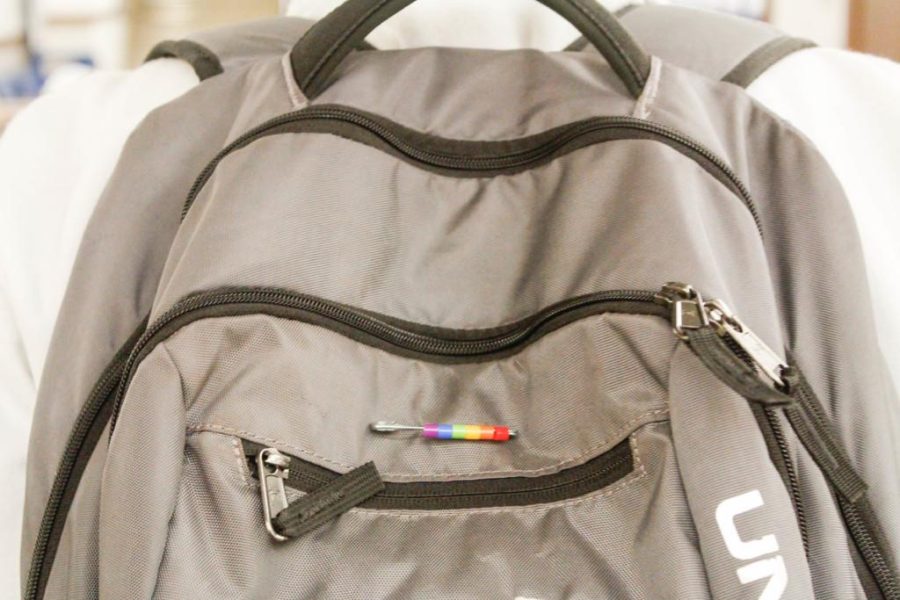Story by Lindsey Coleman, Staff writer
To calm some of the unrest after last week’s presidential election, safety pins are being offered on campus for people to wear and show their support of those who may feel targeted by the president-elect’s comments about marginalized groups.
Many offices have free safety pins, including Student Affairs, Education Abroad and LGBT Programming.
Robyn Pizzo, Education Abroad adviser, said the safety pins are a sign of solidarity with marginalized groups of people who are on campus and in the community: LGBT, people of color, immigrants, Muslims, women, people with disabilities, and others who may feel targeted.
Jody Cofer Randall, coordinator of LGBT Programming, said the pins are meant to be a visibility campaign simply to show there is hope, even though some are scared and uncertain.
“Families are worried about their children going to school, so… I do worry about how some of our students are going to be treated,” Cofer Randall said.
The idea came to Cofer Randall from a Huffington Post article. According to The Huffington Post, the #safetypin idea was inspired by a movement following the Brexit vote in the United Kingdom this summer. Those who wore safety pins after the UK left the European Union showed solidarity with refugees and immigrants who felt alienated.
Cofer Randall said she thought the idea of a person being someone’s “safety pin” would be a great thing for the university. She said she thinks the safety pins are simple and doable, yet meaningful.
After the election, she said she has had many people approach her with a message of, “We’re going to get through this together,” despite some telling people to “get over it.”
Many students are still trying to make sense of what’s happening. She said the day of the election, students lined up at her office and brought their concerns to her.
Students told Cofer Randall the air on campus is different, and no one really knows what to say or how to process it no matter what side they’re on, but Cofer Randall said this idea of “Just get over it” is not acceptable to her.
“You’re talking about people’s feelings, and that doesn’t work, because regardless of what causes it, if that’s what they’re feeling, then we’ve got to try to help work through that,” Cofer Randall said. “It doesn’t have to make logical sense to you or anyone else. If that’s how our students are feeling, we’ve got to work with that.”
Kelsey Crawford, junior from Lick Creek, Illinois, feels the support from those wearing the safety pins as a member of the LGBT community.
“This past week I have witnessed positives and negatives from our student body however the pins are shining through and sending a message of solidarity and love,” Crawford said. “When I see someone wearing a safety pin, I immediately relate that to the fact that they support me, not only as a lesbian-identified woman, but also a biracial woman.”
Crawford also wears a safety pin so other minority groups know they are supported and accepted by her.
Although safety pins are a positive symbol of support, Pizzo said she recognizes the safety pins alone are not enough, and people should do more to be allies during this uncertain time.
“Some ways we can do that on campus and in the community include being intolerant of racism and other forms of discrimination and speaking up when we see or hear it,” Pizzo said. “We should be more inclusive in our relationships, organizations and programming. We should listen to and learn from the groups with whom we’re hoping to show solidarity.”
Pizzo said she hopes study abroad experiences will help students come home with a more empathetic and understanding mindset. She said she hopes the experience will carry over into their everyday lives by recognizing what it feels like to be in the minority while abroad.
“I want anyone who is struggling or just searching for a kind face, to know I am someone who supports diversity and grows from knowledge,” Crawford said. “In the world right now, I feel that hate has grown from fear of the unknown and ignorance to the differences we have but I hope that the safety pins will be a way to bridge that gap and create an open dialogue for growth.


























































































